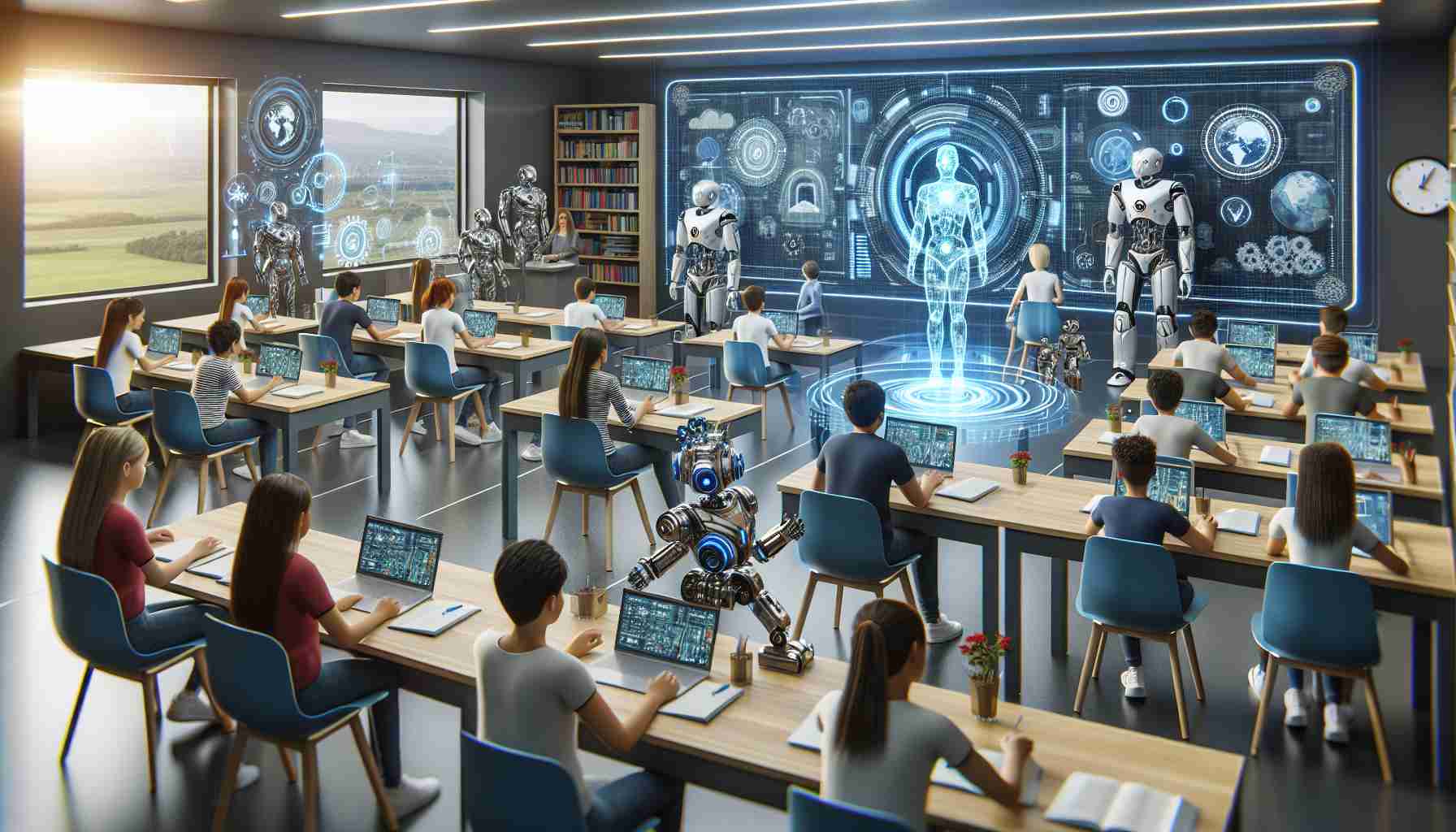Daejeon Education Information Center’s Proactive Step into AI Training
In a progressive move toward integrating artificial intelligence into the educational field, Daejeon Education Information Center successfully conducted its first AI One-Day Class of the year. Intended for elementary, middle, and high school faculty, this inaugural session was part of a series idyllically slated for April, May, September, and October.
This pioneering event, a kickoff to the 2024 sequence, opened its doors to an enthusiastic assembly of 100 educators. Demonstrating a remarkable response rate, the class underscored the escalating interest and demand for AI literacy in teaching professions.
Renowned Science Journalist Steers the Dialogue on AI Education
A lecture titled “Exploring Future Education with AI and Robotic Technology” stood at the heart of this workshop. Renowned science journalist and author, Jeon Seung-min, formerly a senior reporter at Dong-A Science, led the educational discourse. Leveraging his expertise and written work on AI and the Fourth Industrial Revolution, Jeon captivated his audience by underlining the essence of AI literacy and the traits necessary for students to thrive in the imminent future, such as collaboration and problem-solving skills.
In alignment with these dynamic changes, Park Hyun-deok, the director of the Daejeon Education Information Center, pledged a fervent commitment to the development and dissemination of diverse AI educational programs. Their mission: to arm both students and teachers with the digital prowess required to sail through the era of AI, thus shaping digitally competent professionals for the times ahead.
Important Questions and Answers about AI and Robotics in Education:
1. What are the implications of AI and robotics on the current educational system? AI and robotics promise to personalize learning, automate administrative tasks, and provide new interactive learning experiences. Technology can adapt to the needs of individual students, making education more inclusive and effective.
2. How will AI and robotics change the roles of teachers and students? Teachers will transition from traditional lecturers to facilitators and mentors as AI takes over some direct instructional tasks. They will focus on developing students’ critical thinking and problem-solving skills. Students will engage with more self-directed learning and collaborative problem-solving.
3. What are the ethical considerations of AI in education? Issues include data privacy, algorithmic bias, and the digital divide. Ensuring that AI systems are secure, fair, and accessible to all students is critical.
Key Challenges and Controversies:
– Data Privacy: The use of AI systems in education requires the collection and analysis of vast amounts of student data, which raises concerns about the security and privacy of this information.
– Equity and Access: There is a risk that AI could exacerbate existing inequalities in education if access to these advanced technologies is not evenly distributed.
– Teacher Displacement: While AI can enhance the role of teachers, there are concerns about job displacement due to automation.
– Ethical Development of AI: Ensuring that AI systems are developed responsibly, without embedded biases, remains a significant challenge.
Advantages and Disadvantages of AI and Robotics in Education:
Advantages:
– Personalized Learning: AI can tailor educational content to meet individual student needs, accommodating different learning styles and paces.
– Efficiency: Robotics and AI can handle repetitive tasks, freeing teachers to focus on interactive and creative educational activities.
– Engagement: Robots and AI-powered instructional tools can increase student engagement with interactive and gamified learning experiences.
Disadvantages:
– Cost: Implementing AI and robotics in schools requires significant investment for hardware, software, and training.
– Technical Challenges: Schools may struggle with the technical requirements to maintain and update AI systems.
– Social Interactions: Overreliance on AI and robotics could impact the development of social skills and interpersonal relationships.
Suggested related links on AI and education:
– TED Talks: Thought-provoking presentations on the future of education and technology.
– Edutopia: A resource for innovative teaching strategies, including the integration of AI into education.
– International Society for Technology in Education (ISTE): Professional organization that offers resources on EdTech practices, including AI and robotics in education.
The source of the article is from the blog bitperfect.pe

